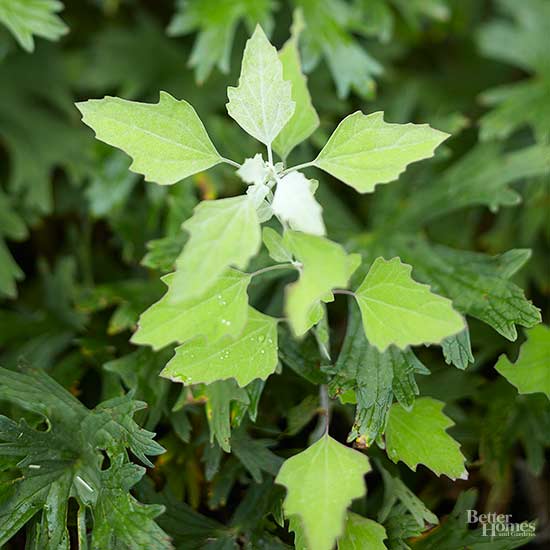





 continue reading below
continue reading below
There are plenty of good ways to kill weeds naturally. Let's start with the non-chemical means of weed killers.
Mulching: Anything that covers and smothers weeds is a mulch, including biodegradable products like cardboard and newspapers. Mulch also helps conserve moisture. An organic mulch works best in two ways: It offers weed control, and it breaks down to add fertility to your soil. Use a 2- to 4-inch layer of organic materials, such as pine bark, straw, grass clippings from a non-chemically treated lawn, or bark. Wood mulches, however, draw nitrogen from the soil in order to break down, so it pulls nitrogen away from your plants. Avoid placing mulch right up next to the trunks of trees or stalks of plants, which can lead to disease or decay.
See our favorite mulches.
Take our quiz to see which mulch you need.
Solarizing: During the heat of summer, place thin clear plastic across any area where you wish to kill weeds. Leave the plastic in place for 4 to 6 weeks. The sun heats the ground and kills weeds and weed seeds, but the intense heat also kills beneficial organisms.
Flaming: Use a propane torch to scorch weeds. Use extreme care and wait until a non-windy day to burn off weeds.
Hand weeding: Grab a dandelion weeder -- a tool with a forked end -- or another sharp implement that allows you to dig deep into the soil to remove a weed's roots. If roots remain in the soil, they may regrow. If you don't have the right tools, pulling the plant out as close to the roots as possible is the next best thing.
Boiling water: Boiling water kills plant tissues. But the stream of water may be hard to control if you are trying to do spot weeding.
Any herbicide you choose, whether it's an organic (sometimes called "natural") compound or a synthetic one, has its benefits and drawbacks. These organic weed-killer products work, but they have limitations.
Corn Gluten Meal: Dr. Nick Christens at Iowa State University discovered that a byproduct of corn milling -- corn gluten meal -- works well to inhibit seeds from growing. This pre-emergent organic herbicide is often sold as a lawn weed-control product. It must be applied at just the right time in spring before weeds begin to sprout to be effective. It also takes several years of applications to reach its full potential. Avoid applying corn gluten meal in any beds where you plan to sow seeds; it will also prevent those from growing!
Vinegar: The active ingredient that makes vinegar a weed killer is acetic acid. White vinegar from a grocery store contains about 5 percent acetic acid. This vinegar burns the tops of weeds but is not likely to kill a weed with well-established roots. It also may kill nearby plants if you're not careful. Frequent application is necessary.
Learn more about vinegar for weed control.
Salt kills plants. However, it also poisons the ground for many years and moves with rain or water into groundwater sources. It's a bad idea to use it anywhere in the yard. No matter how many blogs suggest using a homemade weed-killer recipe that calls for salt or Epsom salt, vinegar, and dish soap, be aware that the salts and soap are toxic to the environment and should be avoided.
Copyright © www.100flowers.win Botanic Garden All Rights Reserved